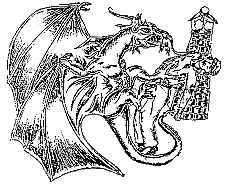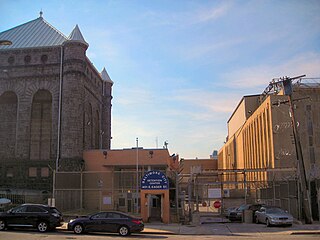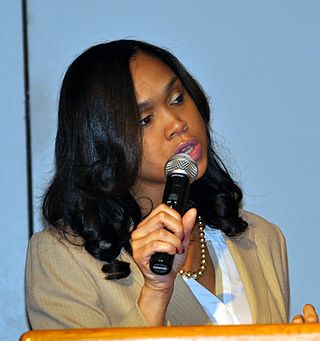Related Research Articles

The Wire is an American crime drama television series created and primarily written by American author and former police reporter David Simon. The series was broadcast by the cable network HBO in the United States. The Wire premiered on June 2, 2002, and ended on March 9, 2008, comprising 60 episodes over five seasons. The idea for the show started out as a police drama loosely based on the experiences of Simon's writing partner Ed Burns, a former homicide detective and public school teacher.

The Black Guerrilla Family is an African American black power prison gang, street gang, and political organization founded in 1966 by George Jackson, George "Big Jake" Lewis, and W.L. Nolen while they were incarcerated at San Quentin State Prison in Marin County, California.
In the United States, Stop Snitchin' or Snitches Get Stitches is a call for informants not to cooperate with law enforcement.

The Baltimore Police Department (BPD) is the municipal police department of the city of Baltimore, Maryland. Dating back to 1784, the BPD, consisting of 2,935 employees in 2020, is organized into nine districts covering 80.9 square miles (210 km2) of land and 11.1 square miles (29 km2) of waterways. The department is sometimes referred to as the Baltimore City Police Department to distinguish it from the Baltimore County Police Department.
Monrovia is an unincorporated community and census-designated place (CDP) in Frederick County, in the U.S. state of Maryland. As of the 2020 census it had a population of 2,702.

Jill Priscilla Carter is an American politician and attorney who has served as a member of the Maryland Senate since 2018, representing the 41st district in Baltimore. She previously represented the district in the Maryland House of Delegates from 2003 until her resignation in 2017.

Richard K. Impallaria is an American politician who served as a member of the Maryland House of Delegates, representing District 7 in Baltimore and Harford counties, from 2003 to 2023.

Felicia Pearson is an American actress, rapper, author and convicted murderer. She played a fictionalized version of herself nicknamed "Snoop" on The Wire and wrote a 2007 memoir, Grace After Midnight, detailing her troubled childhood and time in prison for second-degree murder.

Samuel Isadore Rosenberg is an American politician who has served as a member of the Maryland House of Delegates representing northwest Baltimore since 1983. He is currently the longest serving member of the Maryland General Assembly.

Brian E. Frosh is an American lawyer and politician who served as the Attorney General of Maryland from 2015 to 2023. He also served five terms in the Maryland State Senate, representing Maryland's District 16 in Montgomery County. Prior to serving in the Senate, Frosh represented District 16 in the Maryland House of Delegates, serving two four-year terms.
Hakeem Abdul-Shaheed, also known as Midget Molley, is an American convicted drug dealer and organized crime leader. He acquired the nickname 'Midget' from his family, in reference to his short height. He stands at 5'2".
Whiskey Bottom Road is a historic road north of Laurel, Maryland that traverses Anne Arundel and Howard Counties in an area that was first settled by English colonists in the mid-1600s. The road was named in the 1880s in association with one of its residents delivering whiskey after a prohibition vote. With increased residential development after World War II, it was designated a collector road in the 1960s; a community center and park are among the most recent roadside developments.

Baltimore is the most populous city in the U.S. state of Maryland. With a population of 585,708 at the 2020 census, it is the 30th-most populous city in the United States. Baltimore was designated an independent city by the Constitution of Maryland in 1851, and is currently the most populous independent city in the nation. As of the 2020 census, the population of the Baltimore metropolitan area was 2,838,327, the 20th-largest metropolitan area in the country. When combined with the larger Washington metropolitan area, the Washington–Baltimore combined statistical area (CSA) has a 2020 U.S. census population of 9,973,383, the third-largest in the country.
The American city of Baltimore, Maryland, is notorious for its crime rate, which ranks well above the national average. Violent crime spiked in 2015 after the death of Freddie Gray on April 19, 2015, which touched off riots and an increase in murders. The city recorded 348 homicides in 2019, a number second only to the number recorded in 1993 when the population was nearly 125,000 higher.

Larry Donnell "Donnie" Andrews was an American armed robber, murderer, and anti-crime advocate. He was one of the inspirations for the character Omar Little on the HBO series The Wire.

Poppleton is a neighborhood in west Baltimore, Maryland. The neighborhood is bounded on the north by West Mulberry Street, on the south by West Baltimore Street, on the west by North Carey Street, and on the east by the Martin Luther King Jr. Boulevard. Previously, Poppleton was construed in a broader sense extending further south to West Pratt Street or Lombard Street, but today this area is commonly described as the separate neighborhood of Hollins Market.

Baltimore City Detention Center is a Maryland Department of Public Safety and Correctional Services state prison for men and women. It is located on 401 East Eager Street in downtown Baltimore, Maryland. It has been a state facility since July 1991.

Lawrence Joseph Hogan Jr. is an American politician and businessman who served as the 62nd governor of Maryland from 2015 to 2023. A member of the Republican Party and son of three-term U.S. representative Lawrence Hogan, he also served as chair of the bipartisan National Governors Association from 2019 to 2020.

Marilyn Mosby is an American politician and lawyer who served as the State's Attorney for Baltimore from 2015 to 2023. Mosby gained national attention following the killing of Freddie Gray in 2015, after which she led a highly publicized investigation and unsuccessful murder prosecution of the police officers who arrested and transported Gray.

Georgette Watson was an American anti-drug activist.
References
- ↑ Jeffrey Gettleman (September 2, 2003). "In Baltimore, Slogan Collides With Reality". The New York Times. Retrieved June 9, 2011.
- ↑ Jeffrey Gettleman (October 20, 2002). "Suspect Left Unsupervised". The New York Times. Retrieved June 9, 2011.
- ↑ "Fire Kills Mother and Children at Home". The New York Times. October 17, 2002. Retrieved June 9, 2011.
- ↑ Lawrence Hurley (February 18, 2005). "Survivors of Baltimore drug dealer attack sue for $14M, better". The Daily Record. Retrieved June 9, 2011.
- ↑ Sumathi Reddy (June 1, 2006). "Suit in firebombing is dismissed". The Baltimore Sun. Retrieved June 9, 2011.
- ↑ "Dawson lawsuit ruling is upheld". The Baltimore Sun. April 13, 2007. Retrieved June 9, 2011.
- ↑ Melody Simmons (April 8, 2007). "Home Where Family Died Is Now Safe Haven". The New York Times. Retrieved June 9, 2011.